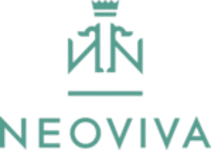Whether it’s a spouse, a child or a parent – addiction not only affects the user but touches the lives of everyone who is close to the person struggling with substance abuse. The entire family is faced with the challenges and devastating effects that follow in the wake of addiction. In this article, we help you understand how addiction affects families, how they can cope with the situation and how they can support the addicted family member on the journey to recovery.
Acquiring, using, quitting. Maybe relapsing, then once more acquiring, using, quitting again … For many users struggling with addiction, living inside this downward spiral feels like a lonely and solely personal experience. They tend to withdraw from friends and family to hide their addiction or secretly indulge in addictive behaviour. To escape from substance abuse, however, it is vital for the struggling person to experience the support of loved ones, especially of their family. But although the user may feel alone, the other family members often feel helpless, too.
Addiction is not an isolated problem of the user, far from it. It affects the entire family, putting relationships, finances and safety at risk. Everyone is entangled in emotional webs, often not knowing how to deal with sadness, fear, anger, or shame. As a result, it is often necessary to rebuild trust, strengthen family bonds, and establish healthy family roles to support recovery and get the loved one sober.
How Addiction Affects …
… Family Relationships
One of the telltale signs that someone is developing an addiction is that they seem to shut down lines of communication that may have been open before and to be reducing their involvement in what was once their favourite family activities. The addict becomes withdrawn from parents, spouses, partners or children, and at the same time, denies having a problem, and tries to conceal or lie about their substance abuse. The discussions and fights caused by this behaviour can severely damage the family bonds and create dysfunctional family units. Family members respond in different ways to this changing situation and often take on unhealthy roles to cope:
> “The Dependent” is the family member struggling with substance use disorder (SUD) and whose actions negatively affect the family.
> “The Enabler” is the individual who steps in and protects the addicted person from the consequences of his or her behaviour. The reasons to take on this role can be manifold. The enabler may want to protect the addict, avoid conflict, or maintain at least some control over the situation.
> “The Hero” steps up and, while the family seems to fall apart, works hard to hold it all together. The hero generally is a high achiever but due to taking on the unhealthy stress and trying hard to keep things as normal as possible, this pressure eventually leaves the hero stressed out and in need of professional help.
> “The Scapegoat” wants to distract the family focus from the addicted member. To achieve this, the scapegoat creates other concerns or problems, for example through misbehaviour, bad grades, or even by taking the blame for something they actually have nothing to do with. As a consequence, scapegoats may start to believe that they really are to blame for everything that goes wrong and develop low self esteem.
> “The Mascot” tries to ease the tension by using humour, clowning around, and by making people laugh. Their hope of keeping things light, however, can prevent them from dealing effectively with their own inner feelings about the damage that the addiction is causing.
> “The Lost Child“s coping mechanism is to avoid conflict and to be as invisible as possible. Consequently, the needs of the person who slides into this role often are overlooked or neglected. While the Lost Child spends much time alone, e. g. with books or listening to music, he or she may become withdrawn from society in general and secretly yearn for love, approval and attention.
All of these roles are part of automatic coping mechanisms, and sooner or later, these different characters become estranged from each other. Family disagreements can become more intense and more frequent. Ironically, the stressful situation and home environment can lead to even more substance abuse.
… Children
Children with parental SUD live in an unpredictable environment with disrupted attachment, rituals, communication, social life and finances. Their home is often filled with secrecy and conflict, and they have to deal with loss, emotional chaos, and maybe even abuse and violence. Research suggests that these children are at risk of developing emotional and behavioural problems which may also influence their development into adulthood and beyond.
The short and long-term effects on children living with addiction in their families include:
- fear of angry people and those in charge
- fear of abandonment
- isolation from others
- struggling with criticism
- feeling overly responsible for the feelings of others.
… Parents
Parents whose children are suffering from addiction often blame themselves: “Maybe if I had done things differently, my child wouldn’t be addicted now.” They feel that their actions have caused, or at least contributed to, the current situation. Parental guilt is a powerful emotional barrier that weakens parents, leaving them to struggle with remorse. They also may take on the role of “the enabler” and support the addicted child financially, “fixing” problems, or turning a blind eye, in the hope that their child will finally turn their life around. Or parents may blame the child for their problems and always have to fix everything. But it makes little sense to assign blame for addiction. No one is at fault.
… Family Finance
Addicts in the family may funnel money that was intended for other uses, such as rent, groceries, or paying insurance bills, into paying for the substances they need. They may struggle to keep their job, and when losing them, they may make demands on their family for money or find other less legal means to fund their addiction. In some cases, this may in turn result in additional strain on the family finances as they may need to take on the legal and damages costs of their loved one’s behaviour. As the family is the most important thing for most people, the family tends to take on the financial responsibility for an addicted member, “no matter the cost”. However, with the rising effort not to let the situation spiral out of control, financial strains can cause personal tension.
Getting Help for the Families of Addicts
One of the most important keys to a lasting recovery is the strength of the support system around the struggling person. Families can have an enormous impact before, during and after treatment. But what if the addiction has left them too damaged and in need of rebuilding trust, healthy family roles and communication? What if they simply can’t muster the energy anymore to provide this much-needed support? Well, just like on an airplane, they need to put on their own oxygen mask first before they can start helping others. Family support groups can offer helpful guidance. For instance, Al-Anon, Nar-Anon, Families Anonymous, or SMART Recovery Family & Friends offer worldwide and online support.
If you are interested in learning more about NEOVIVA’s family treatment options, please don’t hesitate to contact us.




0 Comments